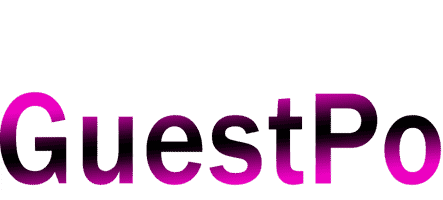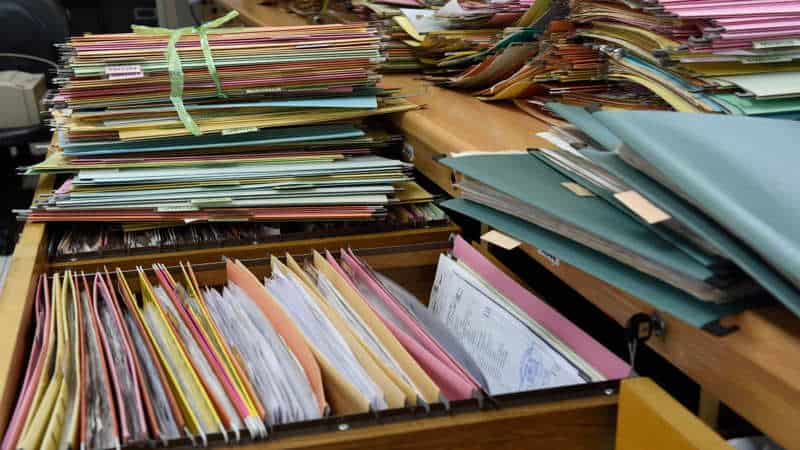Table of Contents
Meaning Of Office Equipment and Machines (Business studies)
Office equipments and machines refer to the devices and tools used in an office setting. These include computers, printers, scanners, and various other technological tools. They are essential for the smooth functioning of an office and are designed to streamline operations and increase efficiency.

There are different types of office equipments and machines, each with their own specific purpose and advantages. These devices make it possible to manage and store information, communicate effectively, and complete tasks more quickly. They offer convenience and accuracy, allowing for better organization and productivity in the workplace.
What is Office Equipment?
Office equipment can be defined as the range of objects, furniture, and machinery, including but not limited to staplers, typewriters, and steel cabinets, that are utilized to enhance productivity and efficiency inside the office environment.
Hence, office equipment refers to objects or furnishings like staplers, typewriters, and steel cabinets that are utilized to assist with tasks in the office.
An ideal office is equipped with several office tools, including a stapler, typewriter, photocopier, calculator, hole punch, steel cabinet, duplicating machine, and various types of computers.
Types Of Office Machines And Equipment
In an ideal office, there are different types of office equipment that can be found. A few examples of such equipment include:
- Typewriter
- The duplicating machine
- Photocopier
- Adding machine
- Calculator
- Scissors
- Cheque writing and signing machine
- Binding machine
- Time stamping machine
- Stapling machine
- Counting machine
- Add listing machine
- Laminating machine
- Filing cabinet
- Letter Opening Machine
- Office pins
- Tape recorder
- Computers etc
- 1. Typewriter
What Is Typewriter?
A typewriter can be described as a machine found in offices that has the necessary mechanisms and components to include alphabets, symbols, and mathematical signs. It is utilized to create documents that are typed.
The individual who utilizes a typewriter to create written documents is referred to as a “Typist”, whereas the individual who writes in shorthand and subsequently transcribes using a typewriter is known as a “Shorthand typist”.
Types Of Typewriter
There are three primary categories of typewriters.
- Standard typewriter
- Portable typewriter
- Manual typewriter
- Electric typewriter
• Standard typewriter
Standard typewriter, commonly found in offices, is defined by four essential elements.
- Tabular mechanism
- The length of the carriage should be between 30cm and 35cm, or 11 to 13 inches.
- One must select from the following options for line spacing: (1, 1/4, 2, 2/4 to 3)
- It is necessary to have four ribbon placements: at the top, in the center, at the bottom, and for stenciling.
• Portable typewriter
Portable typewriter enables the creation of one to six copies simultaneously by utilizing carbon paper.
• Manual typewriter:
A manual typewriter is operated solely by the typist’s own physical power and energy, without the use of electricity. It can be either a standard or portable device.
Advantages Of Manual Typewriter
- Almost all typists are familiar with it.
- Electric typewriters are more expensive compared to obtaining it.
- The cost of maintenance for an electric typewriter is much higher in comparison to that of other types of typewriters.
- The typist’s work will not be affected by a power outage.
Disadvantages Of Manual Typewriter
Typists get tired more easily when using a manual typewriter compared to an electric one.
Typing with it is not as fast as using an electric typewriter.
• Electric typewriter
An electric typewriter is a kind of typewriter that operates using electricity to automatically move the type bar and carriage. A gentle touch is all it takes to activate the type bars.
Advantages Of Electric Typewriter
- It is more effective than portable and standard.
- It creates satisfactory and consistent results.
- Using an electric typewriter can improve the efficiency of typists by allowing them to type faster, which ultimately helps to minimize tiredness.
- By utilizing memory storage, numerous duplicates can be generated automatically.
- Letters can be stored and retrieved at any given moment.
Disadvantages Of Electric Typewriter
- The typist’s work could be interrupted due to a loss of power.
- Maintenance is expensive
- Not all typewriter engineers can to fix it in case of a breakdown.
- It is expensive to acquire or purchase.
Parts Of A Typewriter
- Space bar
- Carriage
- Keyboard
- Carriage return lever
- Type based
- Platen
- Platen knob
2. Duplicating Machine
When a large number of copies of a document are needed, a duplicating machine is used instead of a typewriter. Duplicating machines have the ability to produce up to five thousand copies from a single original.
The main benefit of a duplicating machine compared to a typewriter is as follows.
Types Of Duplicating Machine
- Stencil (ink) duplicator
- Spirit duplicator
• Stencil (ink) duplicator
a. The stencil duplicator is one of the most commonly used types of duplicating equipment and is familiar to most typists.
When creating documents on a stencil duplicator, several steps of processing are necessary.
- Typing
- Writing by hand
- Thermal heal copier
- An electric stencils machine used for the cutting of stencils.
• Spirit duplicator
This type of duplicating machine does not use ink, instead, it uses a stencil to produce impressions. It is the precursor to the stencil duplicator.
3. Photocopier Or Office Copier
Office copiers are machines that are utilized for creating exact replicas of original documents, including letters, reprints, signatures, accounts, and all other types of written or typed documents. In Nigeria, there are various makes, models, and brands of copiers that are commonly used. Today you will definitely find many brand in the market.
Advantages Of Photocopier
- The production process does not involve any skilled work like rewriting, typing, cutting, or filming.
- All the machine does is photocopy and create an identical copy withing seconds.
- It is quicker at generating documents compared to all other forms of duplicating equipment, except the offset printing machine.
- When copies of a document are required, they are easily utilized to produce copies.
Disadvantages Of Photocopiers
The primary drawback is that an original document cannot be instantly created unless it undergoes the process of producing masters like stencils, spirit, film spirit, or handwritten. In simpler terms, it is unable to generate a completely new original document.
4. Perforator
A perforator is a crucial piece of office equipment that is used to create holes in paper and file covers. These holes are essential as they facilitate the process of filing documents.
Advantages Of Perforator
- It presents documents in an organized manner, rather than when they are pierced with a stick or any other item.
- Using a perforator is faster and more convenient compared to using any other type of tool for creating perforations.
5. Filing Cabinets
A filing cabinet is a piece of metal furniture designed as a cupboard with drawers and shelves, specifically used for storing files.
6. Computers
This device is an electronic machine that transforms inputted data. It handles and retains the information using a step-by-step set of instructions called a program, ultimately providing the requested data.
Advantages Of Using Office Machine
- Office machines save time.
- The use of office machines ensures high-quality work.
- Fraud can be avoided by utilizing office machines, such as employing a machine that writes and signs cheques to withdraw funds.
- The use of machines reduces fatigue.
- Using machines leads to a higher level of accuracy compared to using manual means
Factors To Considered When Choosing Office Machines
When selecting office equipment for a workplace, it is important to consider various factors.
- Purpose or Use
- Cost
- Durability
- Availability of replaceable spare parts.
- In the event of a malfunction or damage, technicians or engineers are accessible to perform repairs.
Care of Office equipment and machines
Materials used in the care of office equipment
- A long and short brush
- Duster
- Machine oil
- Methylated spirit
- Clean rag
- Water
- Detergent
- Sponge
Maintenance routine for office equipment and machines
- Make sure to remove dust from the machine or equipment.
- Use the long brush to eliminate dirt from the functioning components of the machines, specifically the areas that are difficult to access with your hand.
- Use a clean cloth to wipe away any grimy oil that is present on the outer surface of the machine. This step is particularly relevant for machines such as typewriters that require regular lubrication.
- Ensure that your equipment is adequately lubricated, particularly those that require oiling, such as typewriters and duplicating machines.
- To prevent the delicate parts of the machine from rusting and becoming stiff, use spirit to clean them.
- It is advisable to place your equipment, such as a computer, in a well-ventilated room. A room with air conditioning or a fan directed towards the equipment is highly recommended.
- Place your equipment on a stable surface to prevent it from accidentally dropping to the floor.



